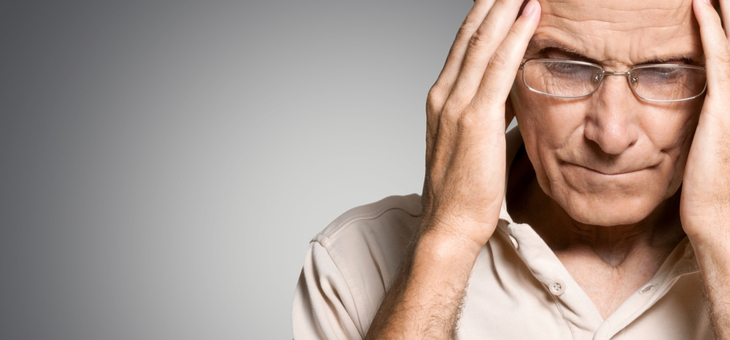The image of an angry man or woman falling victim to ill health immediately after blowing their cool may be common in TV shows and movies, but now researchers have proven there could be some scientific truth to the trope.
A global study into causes of stroke has found that one in 11 survivors experienced a period of anger or emotional upset in the hour leading up to the incident.
The study also found that one in 20 survivors had engaged in heavy physical exertion prior to their stroke.
Read: Living at higher altitudes could lower your stroke risk
The study, led by the National University of Ireland Galway, involved 13,462 cases of acute stroke involving patients from 32 countries, explained Professor Andrew Smyth, one of the lead researchers.
Stroke is a serious medical condition caused by poor blood flow to the brain, resulting in cell death. This can lead to parts of the brain atrophying and brain function stopping, and can cause permanent physical and mental disability.
In Australia, roughly one person every 19 minutes suffers from stroke and more than 445,000 Australians are living with the effects of a stroke.
According to the Stroke Foundation, stroke is one of the country’s largest killers and takes the lives of more women than breast cancer, and more men than prostate cancer.
Read: Salt substitute reduces risk of stroke
“Stroke prevention is a priority for physicians, and despite advances it remains difficult to predict when a stroke will occur,” Prof. Smyth said.
“Many studies have focused on medium to long-term exposures, such as hypertension, obesity or smoking. Our study aimed to look at acute exposures that may act as triggers.”
The research analysed patterns in patients who suffered two forms of strokes – ischemic stroke and intracerebral haemorrhage.
Read: How a stroke changed Mike’s life
Ischemic stroke is the most common type of stroke, which occurs when a blood clot blocks or narrows an artery leading to the brain.
An intracerebral haemorrhage is less common and involves bleeding within the brain tissue itself.
“We looked a two separate triggers,” Prof. Smyth said. “Our research found that anger or emotional upset was linked to an approximately 30 per cent increase in risk of stroke during one hour after an episode – with a greater increase if the patient did not have a history of depression. The odds were also greater for those with a lower level of education.
“We also found that heavy physical exertion was linked to an approximately 60 per cent increase in risk of intracerebral haemorrhage during the one hour after the episode of heavy exertion. There was a greater increase for women and less risk for those with a normal BMI (body mass index),” he said.
“The study also concluded that there was no increase with exposure to both triggers of anger and heavy physical exertion.”
The study’s authors explained that it was important for some people to avoid heavy physical exertion, particularly if they were at high risk of cardiovascular disease, but still adopt a healthy lifestyle including regular exercise.
“We would emphasise that a brief episode of heavy physical exertion is different to getting regular physical activity, which reduces the long-term risk of stroke,” explained another of the lead authors, Professor Martin O’Donnell.
“Some of the best ways to prevent stroke are to maintain a healthy lifestyle, treat high blood pressure and not to smoke, but our research also shows other events such as an episode of anger or upset or a period of heavy physical exertion independently increase the short-term risk.”
Are you a hot head? Does this study make you consider calming down a bit? Why not share your thoughts in the comments section below?
If you enjoy our content, don’t keep it to yourself. Share our free eNews with your friends and encourage them to sign up.

